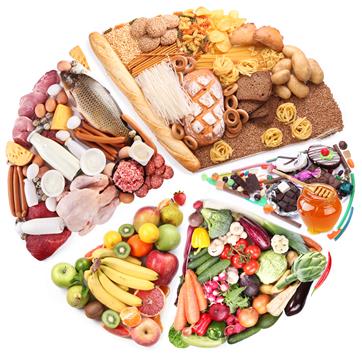
Many people have digestive problems. Sometimes it is hard to know what is going on because the digestive system is so complex. Different foods require different acids and transit times through the system. When these are poorly combined, gas, constipation and bloating can occur. Here are some insights that can help you.
Eat fruits and fruit juices alone, and on an empty stomach
This means that fruit after a meal might not be the best idea. Check in and notice if you have any issues with this. Most do better eating their fruit first, waiting half an hour and then consuming the rest of their meal.
Eat proteins with non-starchy vegetables and/or seaweed
This means that sandwiches made with bread and animal protein might not be a great combination for you. When you eat animal proteins (poultry, fish, meat, and eggs), your stomach secretes hydrochloric acid and the enzyme pepsin to break down the food. This creates a highly acidic environment. When you eat starches like potatoes or bread, your stomach secretes the enzyme ptyalin to create an alkaline environment.
Eating proteins and starches together, tends to neutralize the acids and inhibits digestion. The body then has to deal with this poorly digested food. It goes through the digestive tract until it reaches the intestines. In the intestines, the food putrefies and causes your blood to become acidic. This process creates a welcome environment for disease-causing pathogens.
To avoid this, do not combine proteins and starches (grains, like rice, and starchy vegetables such as potatoes or squash.) Instead, have leafy greens or non starchy with your protein. You can also have oil with your protein. Beans are considered a starch and combine well with non starchy vegetables.
Non-Starchy Vegetables Include: Leafy greens, broccoli, asparagus, tomatoes, cauliflower, carrots, celery, green beans, garlic, fennel, root vegetables, chives, sprouts, yellow squash, zucchini, cucumber, and beets.
Eat grains or starchy vegetables with non-starchy vegetables.
Starchy Vegetables Include: All variety of winter squash, peas, corn, artichokes and potatoes.
Some Pointers:
- Wait at least 2 hours after eating grains like brown rice or quinoa to introduce other foods.
- Wait at least 3 hours after eating animal protein to eat starch or fruit.
- Fats and Oils should be unrefined and organic that are not heat treated. This includes extra virgin coconut or olive oil, sesame oil, raw nuts and seeds. (Only eat fats with vegetables, grains).
- Vegetables combine well with nuts and seeds.
- Vegetables combine well with legumes and beans.
- Vegetables combine well with non-gluten grains.
- Vegetables combine well with animal protein.
- Choose one category of protein (nuts/seeds, legumes/beans or animal protein) per meal.
- Choose either a protein or a starch/grain per meal, but not both.
- Always eat fresh fruit alone on an empty stomach. (Rruit does combine well with dark leafy greens, like in green smoothies).